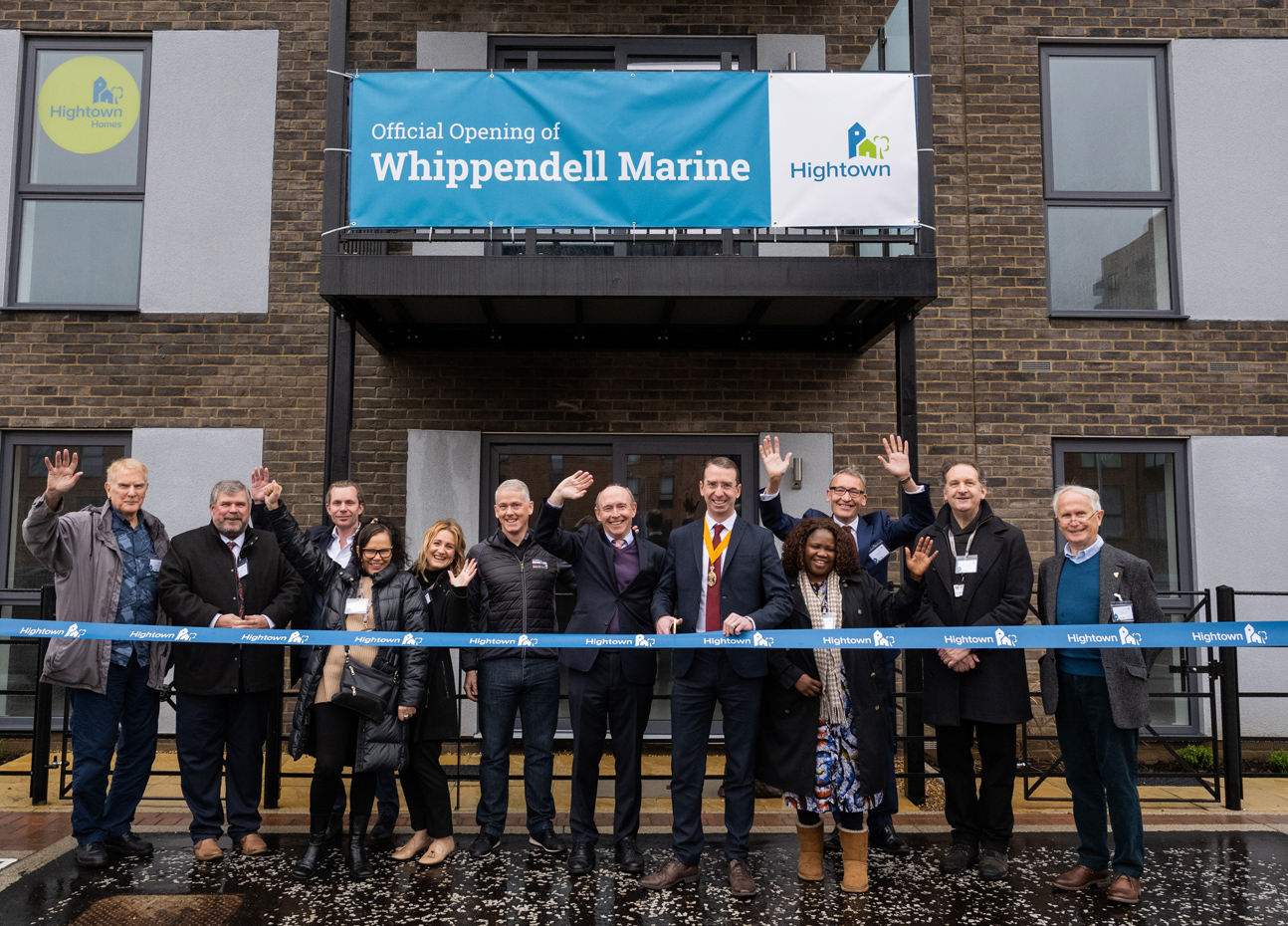Since 2010, housing prices in Canada have skyrocketed by 105% and incomes have not increased proportionately. A recent report by Canada Mortgage and Housing Corporation has stated that the scale of the housing challenge is so large that governments cannot solve the problem on their own. An estimated 3.5 million new housing units are needed to achieve affordability by 2030, and this will require innovative financing and collaboration among all types of housing providers – be they non-profit, for-profit, or co-operative.
Many places in the UK are facing a similar challenge, where housing demand is outstripping supply. Recently, I had the opportunity to visit Hightown Housing, a charitable housing association in the United Kingdom that supports people who cannot afford to buy or rent a home at market price. I sat down with David Skinner, Director of Financial Services, and Neil Wray, Head of Treasury, to unpack the importance of Hightown’s work and learn how community investment has helped them to achieve greater impact. Our conversation follows below.
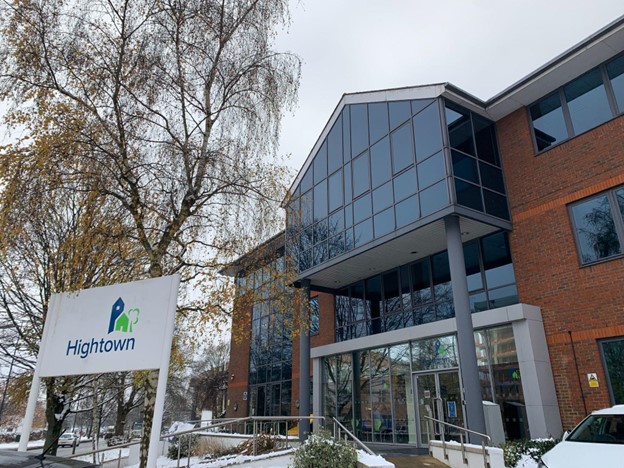
Q: How does Hightown develop affordable housing units?
A: There are two main streams through which Hightown develops affordable housing units. The first is through a planning agreement called Section 106. Through this agreement, when a developer acquires land, they have to designate a portion of the properties for social housing. Then housing associations, like Hightown, bid to purchase those properties. This has accounted for two-thirds of all of Hightown’s developments in the last year.
In other cases, Hightown will buy land, design the property, and contract a builder to construct them. This method allows for more direct control. We also offer care and supportive housing units uniquely designed for vulnerable populations such as homeless people, young people, mothers and young children, and people with learning disabilities.
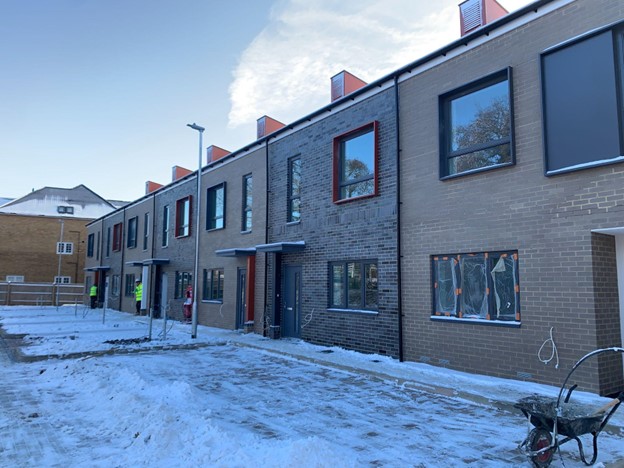
Q: Hightown manages over 8,000 homes. How are these affordable homes financed?
A: Hightown uses a mixture of financing. Most of it is debt financing – so things like bank loans and loans from the capital markets. We are increasingly acquiring capital from institutional investors such as insurance companies and pension funds. We also use grants from the government and we reinvest any surplus Hightown makes back into the organization. We have also issued two retail charity bonds.
Q: How are charity bonds used to finance the affordable housing units?
A: We’ve issued charity bonds twice now. Individuals wanted to invest in their local housing and we were looking for unsecured financing without having to rely on the bank. Charity bonds enabled us to finance the development of affordable housing units as they were being developed. We did not have to wait until the assets were completed to finance the build. Charity bonds also raised publicity for us and our work.
In terms of the actual process, we established our financing need, worked with financial consultants, and engaged in lots of community consultations with potential investors. We then issued the bonds through the Retail Charity Bond plc. on the London Stock Exchange and our bond campaign was oversubscribed. Our first charity bond campaign in 2015 raised £27M within a few days. In 2017, we raised £31.5M in a similar time frame. Charity bonds were the perfect tool for us at that time.
For those interested, here were the terms of each campaign:
| 2015 | 2017 |
|
|
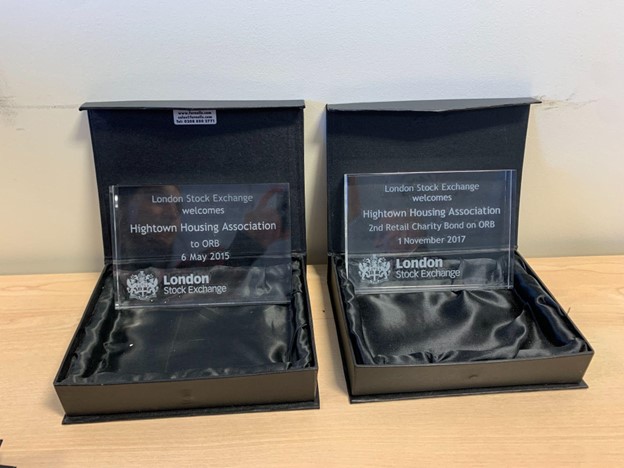
Q: Are there any current developments that Hightown is working on?
A: Yes! Hightown is always working on new projects. We currently have over 40 active projects. One of our largest projects is on a site that used to be an industrial space with warehouses and car lots. We are spending £38M to develop 158 units. This is a combination of flats and houses that will be social housing, affordable rent housing, and shared ownership properties.
Q: What is the difference between social housing, affordable rent housing, and shared ownership properties?
A: Social housing is rented at around 60% of the market rent. Affordable rent housing is rented at 80% of the market rent. Shared ownership properties are intended to encourage individuals to climb the housing ladder. Individuals are able to own a portion of the house and rent the remainder. For example, someone may afford to own 60% of a house so they decide to put a down payment on that and get a mortgage. The remaining 40% of the house is still owned by Hightown, so individuals are responsible to pay rent to Hightown for that portion of the house. Ideally, individuals increase their percentage of ownership of the home until they own 100% of it and buy it out from Hightown.
Q: What impact does Hightown have on its residents and the community?
A: Hightown’s impact is difficult to quantify. But here are some key figures from our social impact report:
- 40% of general needs properties were let to homeless households in 2020/21
- 80 people moved from temporary homelessness services to stable housing
- 776 service users were supported to live with independence
- 40 unaccompanied asylum seeking minors were given accommodation and support
- Properties improved their energy efficiency rating from C to A/B through retrofits
- Households saved an average of £247 on fuel savings
- Only 1.75 tonnes of CO2 equivalent was emitted per home compared to the sector average of 2.53 tonnes
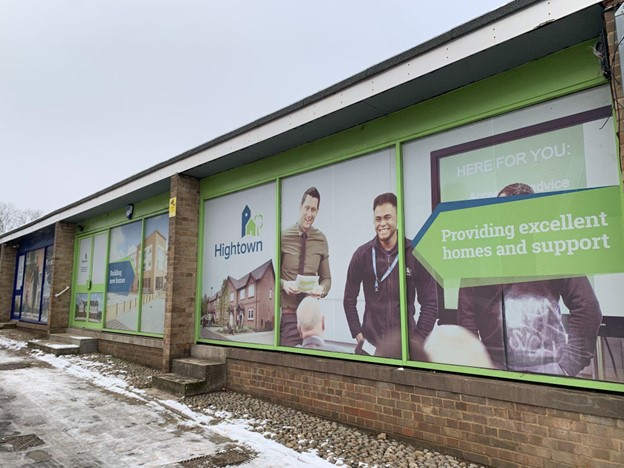
Q: What advice do you have for other housing organizations looking to replicate your model?
A: Go for it! We are all in this sector to solve the housing crisis so we need to develop strategies to do that. For Hightown, that means maximizing development opportunities and maintaining high quality accommodations. Different organizations face different challenges. It’s important not to be complacent and to continue overcoming challenges to achieve our shared bottom line – solving the housing crisis.
About this Blog Series
Hi, my name is Jasleen Bahia, and I was once an Intern at Tapestry Community Capital. I am now completing my degree in business with a focus on social finance, and I’m currently doing a semester abroad in Europe. While here, I am Tapestry’s Ambassador to the UK. This blog series documents my adventure abroad learning about the social finance ecosystem in the UK and connecting it to our growing community investment marketplace in Canada. I am eager to find out what we can learn, replicate and share!


